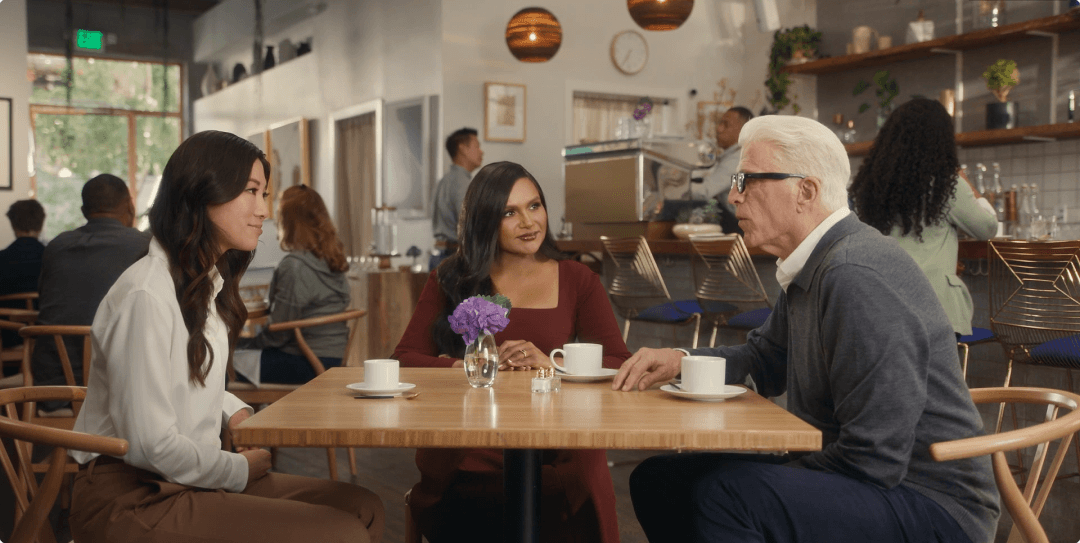Dr. Soung has been compensated for her time.

Mindy Kaling, actor, writer/producer, and an ally for those with plaque psoriasis, joins Ted Danson, actor and plaque psoriasis patient, in celebrating the unique inner vibe of people living with the condition. Watch below to see how Ted and Mindy are encouraging patients to talk to their dermatologists and find a treatment that is right for them.
Ted and Mindy are Bristol Myers Squibb partners. Ted has plaque psoriasis; Mindy does not. Ted and Mindy are not taking SOTYKTU.
Your experience with moderate to severe plaque psoriasis is as unique as you are. Here are some ways to be a self-advocate:
Have candid conversations with your dermatologist about your condition For more facts and resources to help inform those conversations, see below or visit sotyktu.com |
Connect with others and find strength in shared experiences through support groups |
Explore treatment options, like SOTYKTU, with your dermatologist |
Everyone’s experience is different, and a conversation with your dermatologist is the first step toward finding out if SOTYKTU, an FDA-approved medicine for adults with moderate to severe plaque psoriasis, is right for you.

